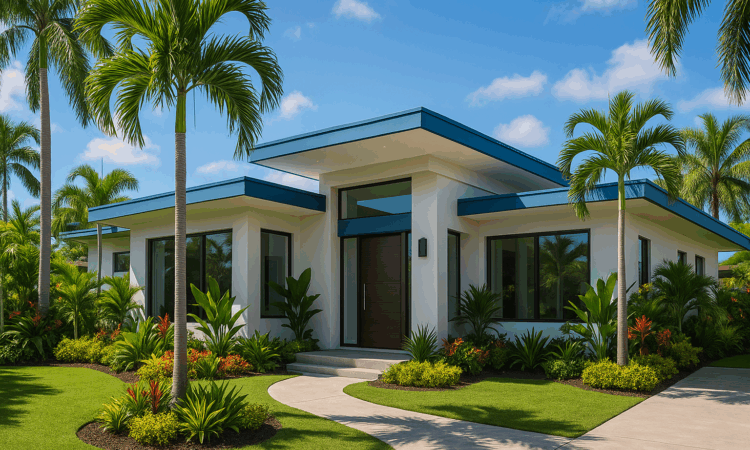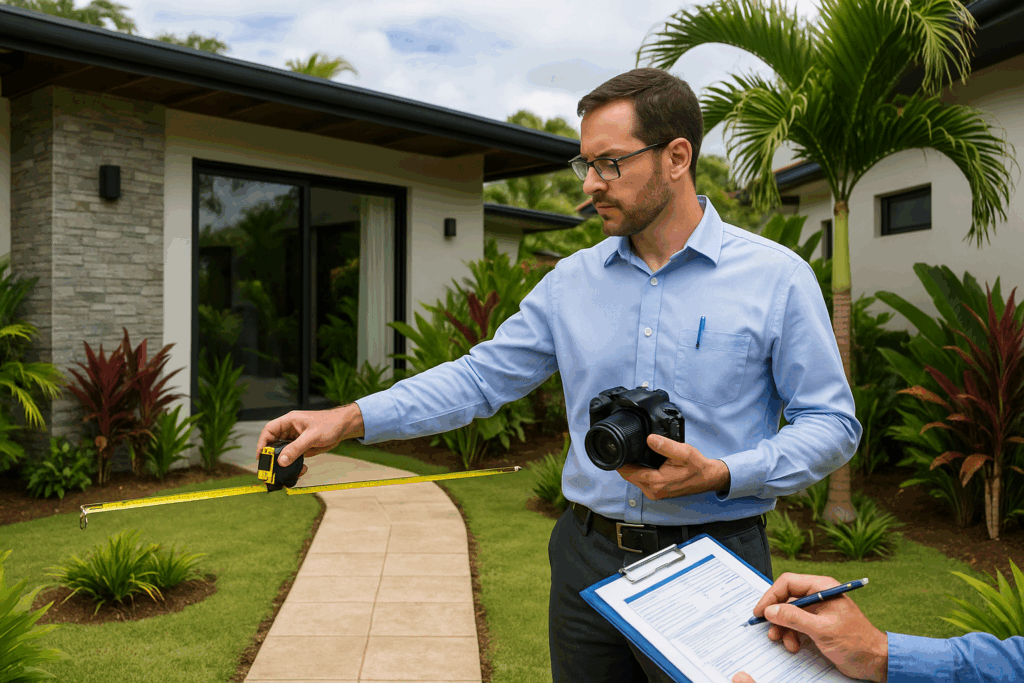
Home Equity Lending Success Strategies in Costa Rica with GAP Investments 2025
Introduction: Maximizing Home Equity Opportunities in Costa Rica
GAP Investments has been at the forefront of home equity lending in Costa Rica for over two decades, developing sophisticated strategies that benefit both borrowers and lenders. Our comprehensive approach to home equity lending combines deep market knowledge, conservative underwriting standards, and innovative loan structures to create win-win opportunities in the Costa Rican real estate market.
This guide explores proven strategies for success in home equity lending, whether you’re a homeowner looking to unlock your property’s value or an investor seeking secured lending opportunities. We’ll cover market dynamics, loan structures, risk management techniques, and the specific advantages of working with GAP Investments in Costa Rica’s unique real estate environment.
Costa Rica Home Equity Market Dynamics
Understanding the Costa Rican home equity market is essential for developing successful lending strategies:
Property Value Appreciation
Costa Rican real estate has shown consistent appreciation over the past decade, with many areas experiencing annual growth rates of 5-10%. This steady appreciation creates substantial equity opportunities for homeowners and security for lenders.
Limited Traditional Financing Options
Traditional banks in Costa Rica often have restrictive lending criteria and lengthy approval processes, creating opportunities for private home equity lenders to fill market gaps with more flexible solutions.
Foreign Ownership and Investment
The significant expat community and foreign property ownership create unique opportunities for home equity lending, as these property owners often have different financing needs than traditional bank products can address.
Tourism and Rental Income Potential
Many Costa Rican properties generate rental income through tourism or long-term leasing, providing additional security and repayment sources for home equity loans.
 Successful Home Equity Lending Strategies
Successful Home Equity Lending Strategies
GAP Investments employs several proven strategies to maximize success in home equity lending:
Conservative Loan-to-Value Ratios
We typically maintain loan-to-value ratios of 50-70%, providing a substantial equity cushion to protect lender interests while still meeting borrower needs. This conservative approach has resulted in zero principal losses in our managed portfolio.
Comprehensive Property Evaluation
Our evaluation process includes professional appraisals, market analysis, condition assessments, and income potential analysis to ensure accurate property valuations and appropriate loan sizing.
Flexible Loan Structures
We offer various loan structures, including interest-only payments, balloon payments, and customized repayment schedules to accommodate different borrower situations and cash flow patterns.
Multiple Exit Strategies
Every home equity loan is underwritten with multiple exit strategies, including refinancing, property sale, or rental income generation, ensuring borrowers have viable repayment options.
Ongoing Relationship Management
We maintain ongoing relationships with borrowers throughout the loan term, providing support and guidance to ensure successful outcomes for all parties.
Benefits for Homeowners
Homeowners working with GAP Investments for home equity lending enjoy numerous advantages:
Quick Access to Capital
Our streamlined process typically provides loan approvals within 5-7 business days and funding within 2-3 weeks, much faster than traditional bank financing.
Competitive Interest Rates
Our rates typically range from 12-16% annually, competitive with Costa Rican market conditions while providing attractive returns for our lender partners.
Flexible Qualification Criteria
We focus on property value and borrower equity rather than traditional credit metrics, making financing accessible to borrowers who might not qualify for bank loans.
Customized Loan Terms
Loan terms can be structured to match borrower needs, with options for interest-only payments, seasonal payment schedules, or other customized arrangements.
No Prepayment Penalties
Borrowers can repay loans early without penalties, providing flexibility for those who secure alternative financing or sell their properties.
Opportunities for Private Lenders
Private lenders participating in home equity lending through GAP Investments benefit from:
Secured Investment Returns
Home equity loans are secured by first mortgages on Costa Rican real estate, providing tangible collateral and security for lender investments.
Attractive Yield Potential
Lenders typically earn annual returns of 12-16%, significantly higher than traditional investment options while maintaining reasonable risk levels.
Professional Management
GAP Investments handles all aspects of loan origination, underwriting, documentation, and servicing, allowing lenders to enjoy passive income without operational responsibilities.
Portfolio Diversification
Home equity lending provides geographic and asset class diversification for investment portfolios, with exposure to Costa Rica’s stable real estate market.
Proven Track Record
Our 20+ years of experience and zero principal losses in managed home equity loans demonstrate the effectiveness of our lending strategies.
Risk Management Strategies
Successful home equity lending requires comprehensive risk management:
Thorough Due Diligence
We conduct extensive due diligence, including borrower qualification, property evaluation, title searches, and legal review, to ensure loan quality and security.
Insurance Requirements
All properties securing home equity loans must maintain comprehensive property insurance with GAP Investments named as loss payee, protecting against casualty losses.
Regular Monitoring
We provide ongoing monitoring of loan performance, property conditions, and market factors that may affect loan security throughout the loan term.
Legal Compliance
Our legal team ensures all loans comply with Costa Rican regulations and international best practices, protecting both lender and borrower interests.
Workout and Recovery Procedures
We have established procedures for managing problem loans, including workout strategies, foreclosure processes, and asset disposition when necessary.
Key Success Factors
Several factors contribute to success in Costa Rican home equity lending:
Local Market Knowledge
Understanding local market conditions, property values, and regulatory requirements is essential for accurate risk assessment and loan structuring.
Professional Network
Established relationships with appraisers, attorneys, contractors, and other professionals ensure efficient loan processing and problem resolution.
Conservative Underwriting
Maintaining conservative loan-to-value ratios and realistic property valuations provides the foundation for successful home equity lending.
Clear Communication
Transparent communication with borrowers about loan terms, expectations, and responsibilities helps prevent problems and ensures successful outcomes.
Ongoing Education
Staying current with market trends, regulatory changes, and best practices ensures continued success in the evolving home equity lending market.
Frequently Asked Questions (FAQ)
1. What loan-to-value ratios do you offer for home equity loans?
We typically offer loan-to-value ratios of 50-70%, depending on property type, location, and borrower qualifications. This conservative approach protects both lender and borrower interests.
2. How long does the home equity loan process take?
Our streamlined process typically provides loan approvals within 5-7 business days and funding within 2-3 weeks, much faster than traditional bank financing.
3. What interest rates can I expect for home equity loans?
Interest rates typically range from 12-16% annually, depending on loan terms, property characteristics, and borrower qualifications. Rates are competitive with Costa Rican market conditions.
4. Can foreign property owners access home equity loans?
Yes, we work with both Costa Rican residents and foreign property owners. Our experience with international clients helps navigate any additional requirements.
5. What types of properties qualify for home equity loans?
We finance various property types including single-family homes, condominiums, commercial properties, and vacation rentals, subject to our underwriting criteria.
6. Are there prepayment penalties on home equity loans?
No, we do not charge prepayment penalties. Borrowers can repay loans early without additional fees, providing flexibility for refinancing or property sales.
7. What documentation is required for home equity loans?
Required documentation typically includes property title, recent appraisal, income verification, and identification. Our team guides borrowers through the documentation process.
8. How do you determine property values for home equity loans?
We use professional appraisals, comparative market analysis, and our extensive local market knowledge to determine accurate property values for loan underwriting.
9. What happens if I have difficulty making payments?
We work proactively with borrowers experiencing payment difficulties to develop workout solutions that protect all parties’ interests while avoiding foreclosure when possible.
10. Can I use home equity loans for investment purposes?
Yes, home equity loans can be used for various purposes including real estate investment, business expansion, or other investment opportunities, subject to our approval process.
Unlock Your Home’s Equity Potential Today
Whether you’re a homeowner seeking to unlock your property’s value or an investor looking for secured lending opportunities, GAP Investments offers proven strategies for success in Costa Rica’s home equity market.
Contact us today to learn more about our home equity lending solutions and how our proven strategies can help you achieve your financial objectives.
- WhatsApp: +506 4001-6413
- USA/Canada toll-free: 855-562-6427
- Email: [email protected]
- Website: https://gapinvestments.com/
- Loan applications: https://www.gapequityloans.com/en/loan-request/
Article by Glenn Tellier (Founder of CRIE and Grupo Gap)


 Successful Home Equity Lending Strategies
Successful Home Equity Lending Strategies